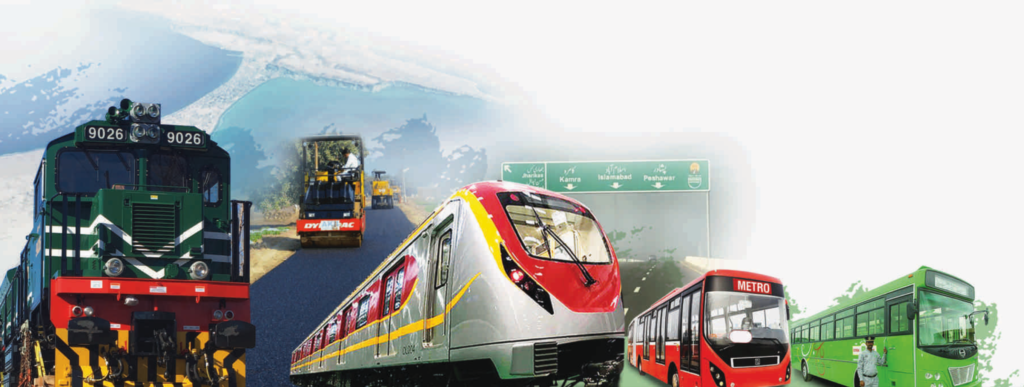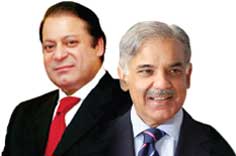Infrastructure Performance 2013-2018

ELECTRICITY
More Power to the Poor
- Provided Rs. 125 B in power subsidy to the poor in 2018
- Lowered agricultural / tubewell tariff from Rs. 8.35/ unit to Rs. 5.35/ unit and provided a subsidy of greater than Rs. 12 B in / tube wells
Zero Load Shedding
- Generated and transmitted a historic high of 20,700 MW of powerin 2018
- Eradicated load-shedding by adding 11,000 MW:
- 6800 MW of LNG, 2650 MW of coal
- 1500 MW of renewables
- 600+ MW of nuclear
- Large hydro projects (Tarbela 4 & Neelum Jhelum)
Lowest cost power
- Shut down / replaced ‘*2100 MW of inefficient oil based plants in order to decrease generation costs
- Transitioned to cheaper fuel sources such as LNG, Coal, and hydro powerLinked load shedding with feeder-level losses to reduce theft and power cost
Go Green — First Generation of Renewables
- Introduced renewables particularly solar and wind to the energy mix ~1500 MW
- Finished large hydro Tarbela 4 ext. (~1400 MW) and Neelum Jhelum (~900 MW) projects
- Heralded net metering to encourage rooftop solar power
Meet Consumer Needs & Enhances Services
- Printed GPS-tagged pictures of meter readings on electricity bills
- Created call centers to deal with consumer issues
NATURAL RESOURCES
Energized People out of Poverty
- Provided gas to 2 million domestic households
- Energized 3000 commercial SMEs with gas, generating mass employment
- Increased competitiveness of QOO large industrial enterprises through gas connections
Pervasive Relief— Diminished Supply-Demand Gap
- Provided relief to households by reducing supply-demand gap from 2bcdf to < 700mmcdf
- Commissioned 2 LNG regasification terminals (1.2 bcdf) in record time
- Signed medium-long term LNG contracts at globally low prices to ensure uninterrupted gas supply to power plants and industries
Reliable Transmission & Distribution to Consumers
- Built 1,681 KM of transmission pipeline
- Completed 19,462 KM of distribution pipeline
- Established 6,500 KM of services infrastructure
Go Green — Sustainability
- Established low carbon-emitting Euro II standards
- Instituted minimum octane rating of 92 RON to improve performance
- Deregulated pricing for petroleum products above 92 RON to encourage quality and performance
Energy Security — Diversified Energy
- Mix: LNG, well head, coal, hydro, nuclear, RE, etc.
- Geography: Middle East, Central Asia, Asia Pacific
- Economics: Created a balanced portfolio of local and imported resources
WATER
Reached a national consensus on the Water Issue
- Formulated the National Water Policy
- Reached an agreement with the provinces through the Water Charter
Improved storage facilities
- Constructed 4 big dams in Satpara, Gomal Zam, Darwat and Shadi Kaur with an accumulative storage capacity of 1.11 million acre feet (MAF)
- Built 20 small dams in Balochistan with an accumulative storage capacity of 0.036 MAF
Expanded access and reliability of water - Co-financed the K-4 Water Project in Sindh
- Extended water supply to an additional 7.2 million citizens through new water connections in 1,075 villages
- Provided access to safe drinking water to 15 million additional citizens in 5 cities by:
- Installing 1,216 km of new water pipelines
- Replacing 1,625 km of worn out pipeline
- Installed 682 new tube-wells in remote areas
- Revitalized 1.574 dysfunctional rural water schemes
- Constructed the Kachhi Canal and other canals on tributaries
Enhanced water quality
- Installed 2,428 water filtration plants to provide clean drinking water to over 6 million citizens
- Invested Rs. 6 billion in new water treatment plants in Faisalabad, improving water quality for 3 million citizens
Increased water financing
- Encouraged joint investment from federal and provincial governments on water related issues, with the former contributing close to Rs. 200 million
- Increased the allocation for water sector from Rs. 35 billion in 2017-18 to Rs. 80 billion for 2018-19
- Appropriated Rs. 23.6 billion for Diamer Bhasha dam
TRANSPORT
Brought Pakistan Railways back on track
- Implemented strategic reforms that increased revenues from Rs. 18 B to Rs. 50 B
- Increased asset velocity by improving availability of functional locomotives from 42% to 82%
- Improved passenger experience by upgrading passenger services and introducing e-ticketing
Improved road infrastructure
- Launched a Rs. 1,360 B program to construct new highways and motorways across Pakistan including the Karachi-Lahore Motorway and the North-South Motorway
- Constructed 8,044 KMs farm to market roads in Punjab under Khadam-e-Punjab Rural Roads Program (KPRRP)
- Constructed 7,500 KMs, widened 11,000 KMs and rehabilitated 14,000 KMs of roads in Punjab
Created world class urban transport
- Built international standard urban transport systems including Metro Buses in three cities, Orange Line Metro Train and feeder bus systems
- Funded the Green Line project in Karachi
- Computerized route permits and digitized bus terminals in Punjab
Strengthened Aviation and Maritime
- Made Gawadar port a reality by operationalizing phase 1 and started development of the Gawadar city
- Developed first ever dirty bulk cargo terminal at Port Qasim
- Completed Deep Water Container Port at the Karachi Port
- Upgraded all major airports (Rawalpindi, Multan, Faisalabad, Quetta and Peshawar) and built the first green field Islamabad airport
- Started construction of Gawadar International Airport
- Increased aircraft movements on average by 5.2% and passenger traffic by 4.5%
- Liberalized aviation sector and gave operating permits to number of airlines


